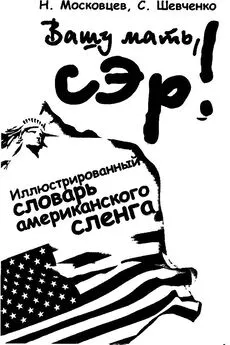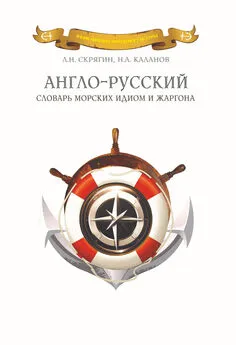Adam Makkai - Словарь американских идиом: 8000 единиц
- Название:Словарь американских идиом: 8000 единиц
- Автор:
- Жанр:
- Издательство:неизвестно
- Год:неизвестен
- ISBN:нет данных
- Рейтинг:
- Избранное:Добавить в избранное
-
Отзывы:
-
Ваша оценка:
Adam Makkai - Словарь американских идиом: 8000 единиц краткое содержание
Это обновленное и дополненное издание, содержащее более 8000 идиоматических
слов и выражений, причем каждое из которых снабжено грамматическим объяснением
и практическим примером. Словарь содержит лексемные идиомы, фразеологические
единицы и поговорки, имеющие особенное значение. В нем приведены наиболее
употребительные выражения только американского английского языка. Этот словарь — идеальное пособие для студентов, часто разъезжающих бизнесменов и просто
путешественников.
Словарь американских идиом: 8000 единиц - читать онлайн бесплатно полную версию (весь текст целиком)
Интервал:
Закладка:
[pass the buck] {v. phr.} , {informal} To make another person decide something or accept a responsibility or give orders instead of doing it yourself; shift or escape responsibility or blame; put the duty or blame on someone else. •/ Mrs. Brown complained to the man who sold her the bad meat, but he only passed the buck and told her to see the manager. / •/ If you break a window, do not pass the buck; admit that you did it. / Compare: LET GEORGE DO IT. — [buck-passer] {n. phr.} A person who passes the buck. •/ Mr. Jones was a buck-passer even at home, and tried to make his wife make all the decisions. / — [buck-passing] {n.} or {adj.} •/ Buck-passing clerks in stores make customers angry. /
[pass the hat] {v. phr.} To solicit money; take up collections for a cause. •/ The businessmen’s club frequently passes the hat for contributions toward scholarships. /
[pass the time of day] {v. phr.} To exchange greetings; stop for a chat. •/ They met at the corner and paused to pass the time of day. /
[pass through one’s mind]See: CROSS ONE’S MIND.
[pass up] {v.} To let (something) go by; refuse. •/ Mary passed up the dessert because she was on a diet. / •/ John was offered a good job in California, but he passed it up because he didn’t want to move. / Compare: TURN DOWN.
[pass upon] {v. phr.} To express an opinion about; judge. •/ George said he wanted his wife to pass up the new house before he decided to buy it. /
[pass with flying colors]See: WITH FLYING COLORS.
[past master] {n. phr.} An expert. •/ Alan wins so often because he is a past master at chess. /
[past one’s peak] {adj. phr.} No longer as strong, efficient, or able as one once was, usually because of advanced age and decreased ability. •/ He used to be a terrific athlete but we’re afraid he is past his peak. /
[pat]See: PIT-A-PAT, STAND PAT.
[pat-a-cake] {n.} A clapping game that keeps time to a nursery rhyme. •/ Mother played pat-a-cake with the baby. /
[patch up] {v.} 1. To mend a hole or break; repair; fix. •/ He patched up a couple of old tires. / •/ The lovers patched up their quarrel. / 2. To put together in a hurried or shaky way. •/ They patched up a hasty peace. /
[pat on the back(1)] {v. phr.} 1. To clap lightly on the back in support, encouragement, or praise. •/ The coach patted the player on the back and said a few encouraging words. / 2. To make your support or encouragement for (someone) felt; praise. •/ After he won the game, everyone patted him on the back for days. /
[pat on the back(2)] {n. phr.} 1. An encouraging tap of the hand on someone’s back; a show of sympathy or support. •/ I gave her a pat on the back and told her she had done fine work. / 2. A word or gesture of praise or other encouragement; applause. •/ Pats on the back weren’t enough; he wanted hard cash. /
[patrol]See: SHORE PATROL.
[Paul]See: ROB PETER TO PAY PAUL.
[pause]See: GIVE PAUSE.
[pavement]See: POUND THE PAVEMENT.
[pave the way] {v. phr.} To make preparation; make easy. •/ Aviation paved the way for space travel. / •/ A good education paves the way to success. /
[pay]See: DEVIL TO PAY.
[pay a call] {v. phr.} To visit someone. •/ "Come and pay us a call some time, when you’re in town," Sue said to Henry. /
[pay as one goes] {v. phr.} To pay cash; to pay at once; to avoid charging anything bought; to avoid debt entirely by paying cash. — Usually used with "you". •/ It is best to pay as you go; then you will not have to worry about paying debts later. /
[pay attention] {v. phr.} To listen to someone; hear and understand someone alertly. •/ "Pay attention, children!" the teacher cried, "Here is your homework for next week!" /
[pay court to] {v. phr.} To woo; to shower with attention. •/ He had been paying court to her for three long years before he worked up the courage to ask her to marry him. /
[pay dirt] {n.} , {slang} 1. The dirt in which much gold is found. •/ The man searched for gold many years before he found pay dirt. / 2. {informal} A valuable discovery. — Often used in the phrase "strike pay dirt". •/ When Bill joined the team, the coach struck pay dirt. / •/ Jean looked in many books for facts about her hometown, and finally she struck pay dirt. / Compare: STRIKE IT RICH.
[pay down] {v. phr.} 1. To give as a deposit on some purchase, the rest of which is to be paid in periodic installments. •/ "How much can you pay down on the house, sir?" the realtor asked. / 2. To decrease a debt with periodical payments. •/ I’d like to pay down the charges on my credit cards. / Compare: DOWN PAYMENT.
[pay for] {v.} To have trouble because of (something you did wrong or did not do); be punished or suffer because of. •/ When Bob could not get a good job, he realized he had to pay for all the years of fooling around instead of working in school. / •/ Mary was very mean to John because she wanted to make him pay for all the years in which he had ignored her. / Compare: MAKE UP(3b), PAY OFF.
[pay in advance]See: IN ADVANCE.
[pay lip service to]See: LIP SERVICE.
[payoff] {n.} Culmination point; climax. •/ After many months of patient labor on your book, the payoff comes when you see the first printed copy. /
[pay off] {v. phr.} 1. To pay the wages of. •/ The men were paid off just before quitting time, the last day before the holiday. / 2. To pay and discharge from a job. •/ When the building was completed he paid off the laborers. / 3. To hurt (someone) who has done wrong to you; get revenge on. •/ When Bob tripped Dick, Dick paid Bob off by punching him in the nose. / Syn.: PAY BACK. 4. {informal} To bring a return; make profit. •/ At first Mr. Harrison lost money on his investments, but finally one paid off. / 5. {informal} To prove successful, rewarding, or worthwhile. •/ Ben’s friendship with the old man who lived beside him paid off in pleasant hours and broadened interests. / •/ John studied hard before the examination, and it paid off. He made an A. /
[pay one a left-handed compliment]See: LEFT-HANDED COMPLIMENT.
[pay one back in his own coin] {v. phr.} To retaliate. •/ Jim refused to help Bob when he needed it most, so Bob decided to pay him back in his own coin and told him to go and look for help elsewhere. /
[pay one’s respect to] {v. phr.} To discharge one’s social obligations by visiting someone or by calling them on the phone. •/ The newly arrived people paid their respects to their various neighbors during their first couple of weeks in town. /
[pay one’s way] {v. phr.} 1. To pay in cash or labor for your expenses. •/ He paid his way by acting as a guide. / 2. To be profitable; earn as much as you cost someone; be valuable to an employer; to yield a return above expenses. •/ The bigger truck paid its way from the start. / •/ We had to offer our new manager a large salary, but he was a capable man, and paid his way. / Compare: WORTH ONE’S SALT.
[pay out]See: PAY OFF.
[pay the piper]or [pay the fiddler] {v. phr.} To suffer the results of being foolish; pay or suffer because of your foolish acts or wasting money. •/ Bob had spent all his money and got into debt, so now he must pay the piper. / •/ Fred had a fight, broke a window, and quarreled with his counselor so now he must pay the fiddler. / Compare: PACE THE MUSIC(2). (From the proverb "He who dances must pay the piper (or the fiddler).")
[pay through the nose] {v. phr.} , {informal} To pay at a very high rate; pay too much. •/ He had wanted experience, but this job seemed like paying through the nose for it. / •/ There was a shortage of cars; if you found one for sale, you had to pay through the nose. /
[pay up] {v.} To pay in full; pay the amount of; pay what is owed. •/ The monthly installments on the car were paid up. / •/ He pays his dues up promptly. / •/ He gets behind when he is out of work but always pays up when he is working again. /
[peace]See: HOLD ONE’S PEACE.
[pearl]See: CAST PEARLS BEFORE SWINE or CAST ONE’S PEARLS BEFORE SWINE.
[pebble]See: NOT THE ONLY PEBBLE ON THE BEACH.
[peck]See: HUNT AND PECK.
[pecking order] {n.} The way people are ranked in relation to each other (for honor, privilege, or power); status classification; hierarchy. •/ After the president was in office several months, his staff developed a pecking order. /
[pedestal]See: ON A PEDESTAL.
[peel]See: KEEP ONE’S EYES PEELED.
[peel off] {v.} To dive away from a group of airplanes in a flight formation; bring one plane down from a group. •/ As the group neared the home base, pilot after pilot peeled off for a landing. /
[peeping Tom] {n.} A man or boy who likes sly peeping. •/ He was picked up by the police as a peeping Tom. /
[peg]See: SQUARE PEG IN A ROUND HOLE, TAKE DOWN A PEG.
[peg away] {v.} To work methodically, industriously, or steadily •/ Thomson pegged away for years at a shoe repair business. / •/ Jones kept pegging away, and finally recognition came. /
[pen]See: POISON-PEN, SLIP OF THE PEN.
[penalty box] {n.} A place where penalized hockey players are required to go to wait until the penalty is over. •/ Two players got into a fight and were sent to the penalty box for two minutes. /
[penny for one’s thoughts]Please tell me what you are thinking about; what’s your daydream. •/ "A penny for your thoughts!" he exclaimed. /
[penny pincher], [penny pinching]See: PINCH PENNIES.
[penny wise and pound foolish]Wise or careful in small things but not careful enough in important things. — A proverb. •/ Mr. Smith’s fence is rotting and falling down because he wouldn’t spend money to paint it. He is penny wise and pound foolish. /
[pen pal] {n.} A friend who is known to someone through an exchange of letters. •/ John’s pen pal writes him letters about school in Alaska. /
Читать дальшеИнтервал:
Закладка:







